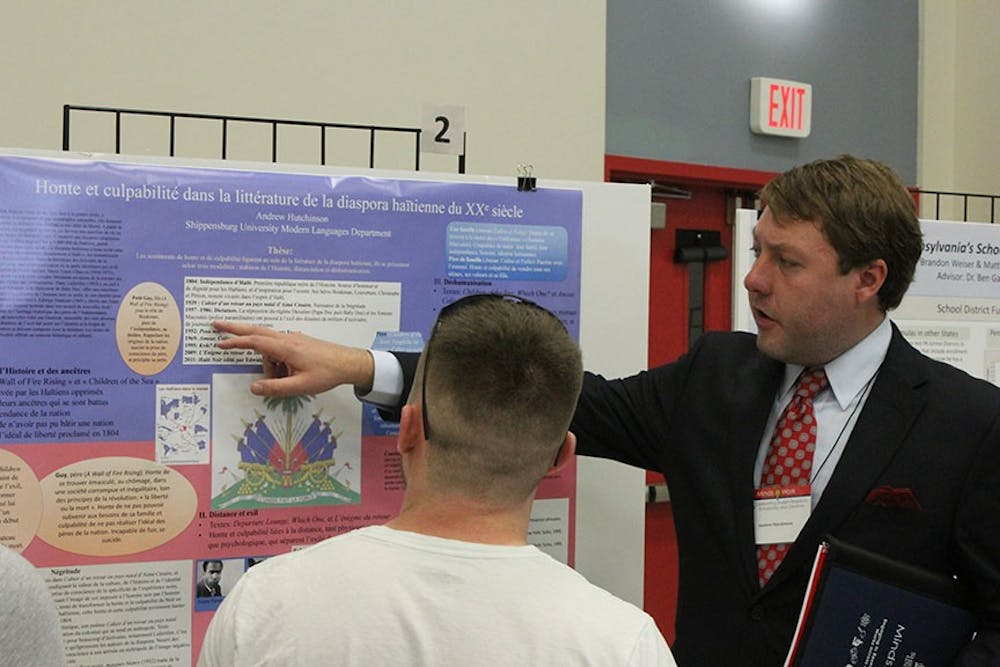Shippensburg University became the epitome of academic stimulation on April 21, when hundreds of people gathered in the Ceddia Union Building to learn about the research of dozens of students.
The “Minds@Work” conference featured topics ranging from fruit flies to 3D printers.
With 30 sessions, including symposiums, panel discussions, lectures and open forums, undergraduate and graduate SU students used the opportunity to share unique projects to classmates, professors, future employers and the local community.
The free event began at 2 p.m. with a history department panel on the ancient Mediterranean and ended more than six hours later with an ecology and natural history presentation by the biology department.
The first of the two poster sessions featured more than 50 students with displays of their research. Many students came to view the exhibits, but professors and administrators came, as well, including John Kooti, dean of the College of Business, and professor of history Catherine Clay.
“I came out to support the students,” Clay said, adding she had students from her general education courses there. Clay noted the various differences in subject matters of the displays.
One she liked in particular was Andrew Hutchinson’s, which was about the history of Haiti.
Hutchinson, a junior who is majoring in French and International Studies, presented his project, “Guilt and Shame in the Literature of the Haitian Diaspora.” His display, which was written entirely in French, focused on how the dense history of the country created a certain identity of its inhabitants.
“It has a long history,” Hutchinson said. That history includes slavery, oppression, discrimination and revolution, the latter of which was impactful to other nations.
“The eyes of the world turned to Haiti,” he said.
Today, the eyes of the world are looking at Haiti and wondering how and why its people suffer from unsteady elections and constant poverty. Part of the problem is a language barrier that exists between the minority, powerful French speakers and the majority lower class Creole speakers, he said.
Josh Coffey, an undergraduate student, presented an investigation of his own about the Ming dynasty’s seven exploration voyages and the reason they ended, even though they benefited China.
“Through these voyages, Ming China’s overseas trade grew, as well as its prestige in the region,” Coffey’s summary said.
Problems with Mongels and the voyages not being cost-effective are two common explanations for why the Ming Dynasty ended, but Coffey argued the true reasons for their end was due to internal political affairs.
Other displays discussed matters of technology, biology, social media and much more.




The Slate welcomes thoughtful discussion on all of our stories, but please keep comments civil and on-topic. Read our full guidelines here.